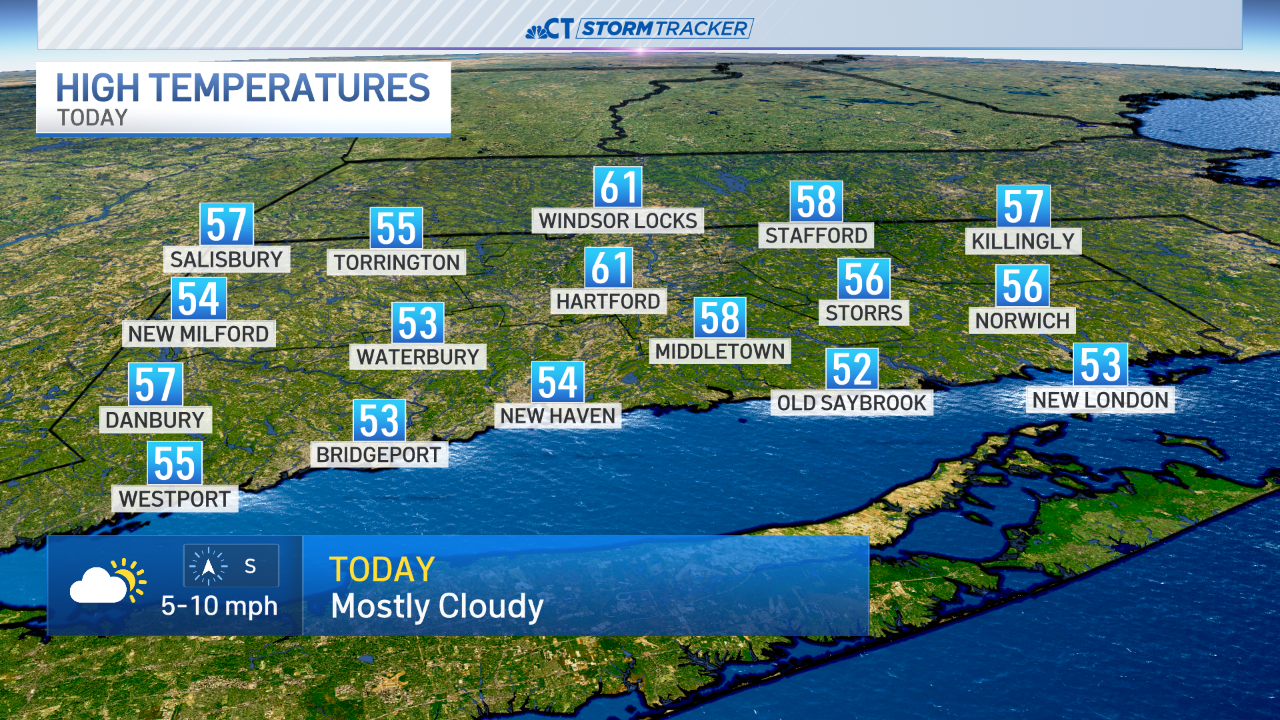Our beautiful Connecticut coastline is at the forefront of climate change, warming four times faster than the global ocean. And while the gradually increasing water temperature may not be noticeable to beachgoers, to local fishermen it is changing the game.
“The amount of fish that we saw in the Long Island Sound the fish that are resident in Long Island Sound of the flounders and the different shellfish...those fish began to disappear noticeably disappear,” explained Gary Yerman, a fisherman and founder of New London Seafood Distribution.
Gary has been fishing out of Connecticut for 47 years. While his catches started in Long Island Sound, the evolving ecosystem has made trips longer and farther.
“Out trips were actually daytrips where we leave early in the morning,” Yerman said. “And we’d get back late in the evening and we download our fish and go the next day that turned into overnight fishing where would be gone for two days and then in the mid-80s when all we started seeing all of these changes and fisheries regulations changes and what not we ended up fishing in the ocean, in North Atlantic. We fish room all the way from Virginia to the Canadian line.”
While it’s not the only factor in play, the gradually increasing water temperature of the Sound is making big waves.
“It’s pretty clear that Long Island Sound has been warming the whole time,” said University of Connecticut Professor of Marine Sciences James O’Donnell. “And the recent 30 and 40 years maybe warming a little bit more and so it doesn’t seem like a lot - you know, two or three degrees but some organisms are particular sensitive to thresholds so the duration of the summer which is warmer than a particular value is longer than if you have a small change in temperature so it’s got a big ecosystem impact.”
Research is showing that water temperatures closest to the northeast coast are warming faster than 99 percent of global oceans. This supports the shift in the ecosystem that we’re seeing here in the northeast.
Local
“We’ve seen a lot of the inshore populations diminish, we have seen our flounder population or lobster populations especially in eastern Long Island Sound,” Yerman said. “It was this slow evolution that we saw changing right in front of us.”
And now Connecticut’s former environmental chief is chiming in on what it means for our Connecticut seafood staples.
“The water is too warm for the lobsters,” said Gina McCarthy. “And that was a pretty dramatic shift for Connecticut that they had to deal with a decade or a little more than that that when it began. So we have to recognize that our ecosystems are changing because of climate change.”
As for the price of your seafood, there hasn’t been a largely noticeable difference given how much it varies on any given day.
“The price of whiting one day in the market can be 30 cents a pound. If the weather is severe or our boats haven’t got now they can jump to a dollar and a half two dollars a pound within a day or two,” Yerman explained.
But warming water isn’t the only factor impacting the ecosystem in Long Island Sound. Rising sea levels associated with climate change are altering the lives of those that live along, and in, the water.
“What they all want to do is try and protect their houses from flooding by building sea walls and tied gates and stuff,” O’Donnell said. “But what that does is put pressure on the ecosystem because fish and birds and things that live on the Sound eat in marshes, will now have less suitable habitat. So it’s going to be a conflict I think in the near future between preserving the ecosystems and the Sound, and protecting housing and roads and flooding - and do you know that I think is going to threaten some of it some of the advances that environmental protection is achieving over the past for five decades around here.”
It's a delicate line to walk, but scientists, lawmakers, and fishermen alike agree that changes need to be made.



